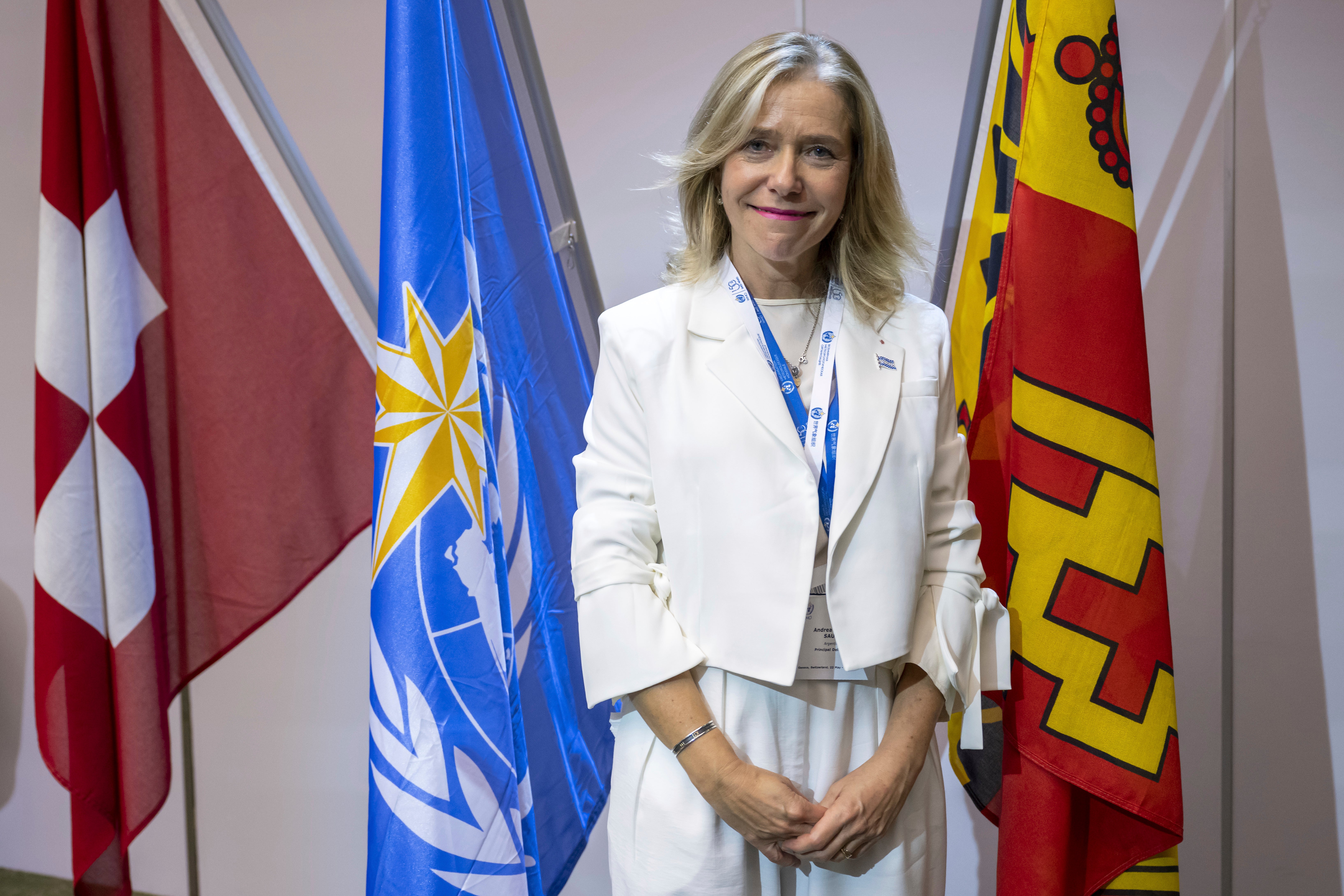In first public statement, new UN weather chief calls to bolster warning systems for extreme weather
Celeste Saulo, the new secretary-general of the World Meteorological Organization, has said her administration will prioritize the strengthening of early warning systems to help reduce the risk of weather disasters worsened by climate change

The new head of the United Nations weather agency said Tuesday that strengthening early warning systems that monitor when and where extreme weather will happen is a key priority for her administration that will help reduce the risk of natural disasters that are exacerbated by climate change.
Celeste Saulo, an Argentine and the first female secretary-general of the World Meteorological Organization said the agency will enhance the accessibility of weather data and make timely and lifesaving information available to all.
“We stand at the intersection of inequality and climate change, and our strategies must reflect the urgency of the times,” she said in introductory remarks at a press briefing for U.N. agencies.
Early warning systems make it possible to forecast weather occurrences by monitoring the atmosphere in real time. They help people prepare for potentially fatal events including floods, heat waves and tropical storms.
As natural disasters have gotten more potent and frequent due to human-caused climate change, the need for early warning systems has increased. But only half of the world’s countries have adequate early warning systems, according to a WMO study, causing thousands of deaths in climate disasters in vulnerable regions.
In 2022, the U.N. launched a project to put every person in range of early weather-warning systems within five years.
Saulo said the WMO, together with other organizations, has identified 30 less developed countries — such as Guyana and Haiti — that are prone to weather hazards to develop early warning systems there.
“Adapting to climate change is not a choice, but an essential necessity,” she said. “It is about building resilient communities, especially in the most vulnerable regions, capable of resisting to and recovering from climate-related disasters.”
Lack of capacity and funding, including for maintaining weather stations and taking part in global scientific activities, makes changing weather extremes in the Global South poorly understood, said Friederike Otto, a climate scientist at the Grantham Institute at Imperial College London.
“Coming from Argentina, Professor Saulo will be acutely aware of the fact that the global south is the worst affected by climate change," Otto said. “By addressing this scientific shortfall, enabling global South countries to record and share data, the WMO can help vulnerable communities prepare for life on a warmer, harsher planet.”
Saulo took up her position as WMO Secretary-General at the beginning of January.
___
The Associated Press’ climate and environmental coverage receives financial support from multiple private foundations. AP is solely responsible for all content. Find AP’s standards for working with philanthropies, a list of supporters and funded coverage areas at AP.org.
Bookmark popover
Removed from bookmarks